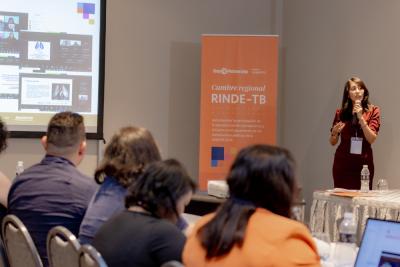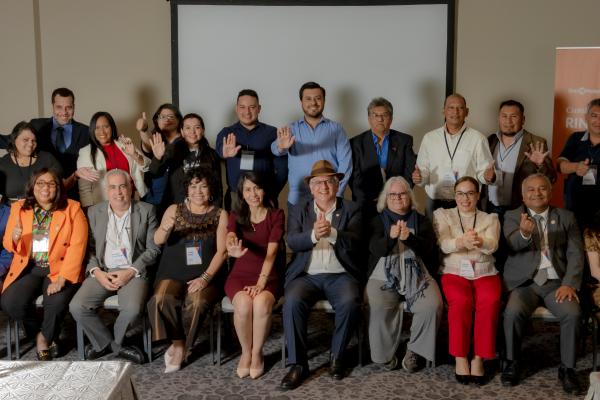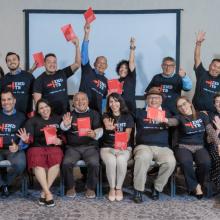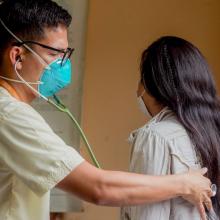Although preventable and curable, tuberculosis (TB) is an infectious disease that affects millions of people globally. Around 10 million cases are reported each year and it is estimated to kill 1.4 million people, including 230,000 children, more than 50% of whom are under the age of five.
Latin America and the Caribbean are the only region in the world where TB mortality was expected to increase in 2022. A clear reflection of the inequalities in which their populations live, according to data on the epidemiological situation included in the World Health Organization (WHO) World TB Report for 2023.
However, this region could become the first in the world to eliminate TB. And it is because the epidemic is concentrated in vulnerable geographic areas and populations, so combating it involves moving toward an appropriate approach to multisectoral responsibilities and resources to accelerate the response against it.

Helen Marín, jefa de la Unidad de Abogacía y Relacionamiento Comunitario de Socios En Salud, estuvo presente en una de las mesas de la cumbre regional realizada en República Dominicana por el proyecto RINDE – TB.
Fighting TB, a shared task
Efforts to end TB by 2030, according to the Sustainable Development Goals, are a shared task involving the active and multisectoral participation of States, national TB programs and international cooperation agencies.
Of course, it also involves the collaboration of civil society.
This citizen sector, organized, plays a fundamental role in the accompaniment and monitoring of all policies promoted by the States and the community. Its advocacy actions for the promotion of the right to health are key.
Civil society is the bridge between the community affected by TB and the health services made available by the States.
Civil society plays a fundamental role in the accompaniment and monitoring of the policies promoted by the States and the community.
RINDE - TB, strengthening the role of civil society
Socios En Salud, through its RINDE - TB project, implemented a capacity building initiative for civil society working on tuberculosis, with a scope in 12 countries in Latin America and the Caribbean: Peru, Colombia, Bolivia, Ecuador, Argentina, Paraguay, Panama, Mexico, El Salvador, Guatemala, Honduras and the Dominican Republic.
It is a project that trained in the accompaniment and monitoring of the multisectoral responsibilities of States, based on the commitments of the Political Declaration of the United Nations High Level Meeting on TB 2023.
Among its latest activities, RINDE - TB led a regional summit held in Santo Domingo (Dominican Republic), between April 22-24, 2024, to advance the multisectoral framework of TB responsibilities in the 12 countries of intervention, and involve civil society representatives who previously participated in a prioritization exercise of issues based on the Political Declaration of the UNHLM 2023 (United Nations: General Assembly, 2023).
RINDE - TB is implemented in partnership with the Regional Tuberculosis Social Observatory and the TB Coalition of the Americas, with funding from the Stop TB Partnership/UNOPS through its Challenge Facility for Civil Society Round 11.



